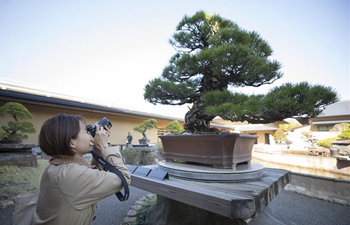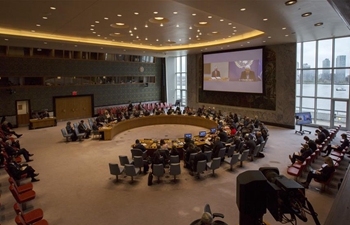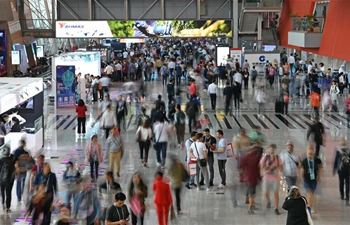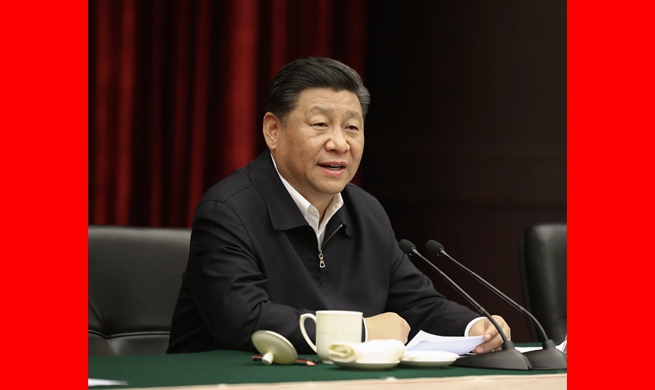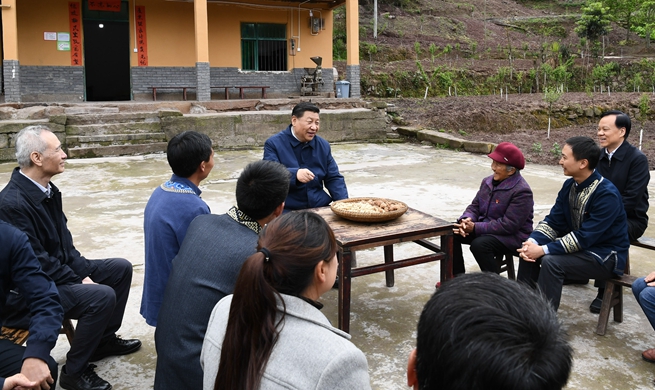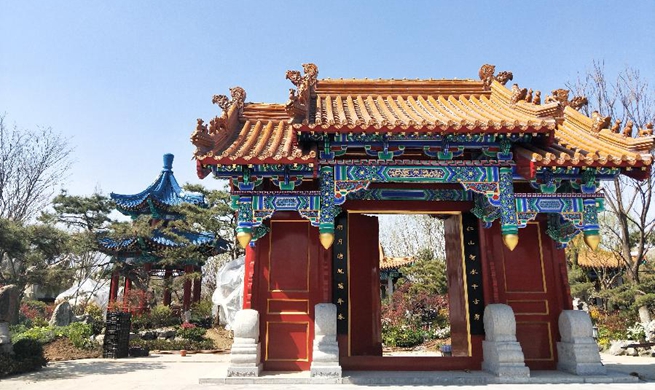JUBA, April 16 (Xinhua) -- South Sudan said on Tuesday increased involvement in regional and global trade will help provide the much needed social and economic stability that will eventually improve security in the country after five years of conflict.
Mou Mou Athian, Undersecretary in the Ministry of Trade and East African Affairs (EAC) told business community in Juba, that after joining the EAC in 2016, Juba was now pursuing membership in the World Trade Organization (WTO) that will open up access to capital and market for locally produced goods.
"We need to actively open up and be connected to the rest of the world as precondition for jumpstarting as well as sustaining economic growth required to promote social and economic stability," he said.
"South Sudan joining the East African Community (EAC) and seeking membership in WTO, is our way of telling the world that we are committed to undertaking necessary reforms that will allow us to attract investment, as well as expand the market of doing business between South Sudan and the rest of the world," added Athian.
Juba applied to join the WTO in 2015, and was recipient of 6 million U.S. dollar support from WTO under the Enhance Integrated Framework, a multi-donor program which helps least-developed countries in the global trading system.
Athian disclosed that they are ready to take advantage of membership in the EAC which is home to 172 million people, and a combined Gross Domestic Product (GDP) of 172 billion U.S. dollars.
"We need access to wide market that's why we are acceded to the EAC in 2016 and now pursuing accession to the WTO," he said.
Athian added that a closed economy discourages investment, and yet land-locked South Sudan with its vast crude oil reserves, herds of cattle, honey and fish stands to benefit more from EAC and global trade.
He also said that they are working on strengthening the rule of law and improving on transparency and accountability systems to revive investor confidence previously lost after outbreak of conflict in December 2013.
"It was not only conflict that affected investments but also lack of clear rules, transparency and accountability," said Athian.

